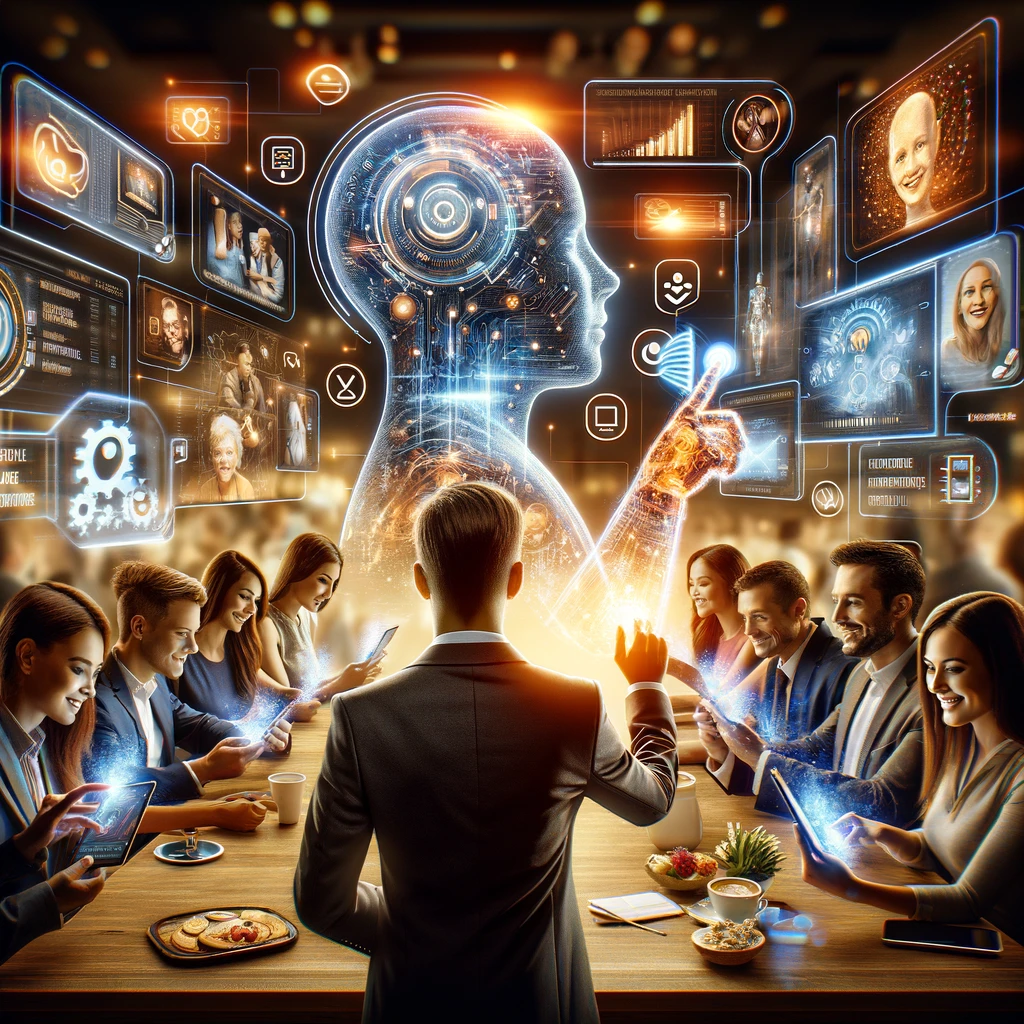As AI reshapes the contours of marketing, the essence of personalisation and maintaining a human connection when creating content and communicating is more important than ever. This cutting-edge technology opens up possibilities of productivity improvements plus new opportunities for engaging audiences, but is also risks diminishing the human touch in marketing.
The expanding role of AI in content creation
Artificial Intelligence (AI) is rapidly transforming the way marketers and others create content who are regularly using tools like ChatGPT and Copilot. A notable 76% of marketers employing generative AI report its use in basic content generation and copywriting tasks according to Insider Intelligence. Moreover, the Press Association now produces approximately 30,000 local news stories monthly across the UK, showcasing the profound impact and potential of AI in the realm of content creation.
The importance of human connection
Yet, amid these technological advancements, the importance for human connection in marketing materials and social media remains undiminished. The phenomenon of empathy, shared experiences, and the instinctual responses we exhibit in social settings underscore the deep-seated need for genuine connection. Before publication, AI-generated content should be reviewed and edited to ensure it strikes a chord that resonates with human emotions, desires and values.
The power of personalisation
Personalisation has long been the holy grail of marketing, and AI has made it more attainable than ever. Marketers and social media managers should ensure that prompts contain as much information as possible on the role of the person creating the content, the company’s or client’s brand and the intended audience. True personalisation is not just about addressing consumers by name or segmenting email lists. It’s about crafting messages that speak to individual needs, preferences, and life moments, thereby fostering a connection that feels both genuine and meaningful. This level of personalisation requires a blend of AI’s analytical power and the marketer’s empathetic touch.
Striking a balance
The challenge, then, is to strike a delicate balance between leveraging AI’s capabilities for personalisation and efficiency, while also preserving the authenticity and trust that are foundational to successful marketing. AI can automate processes, reduce errors, and deliver personalised experiences at scale. Yet, it is the human intuition, creativity, and empathy that imbue marketing messages with soul and authenticity and that’s why talented copywriters can earn big bucks.
Authenticity and ethical considerations
In an age where consumers are bombarded with content, authenticity emerges as a critical differentiator. AI can help tailor interactions to be more relevant and engaging, but it cannot replicate the nuanced understanding of human emotions and the ethical considerations that govern our interactions. Marketers must navigate the ethical landscape carefully, ensuring their use of AI respects consumer rights and fosters trust. This involves a commitment to transparency, especially in clarifying the use of AI in communications. If you’re using an AI bot give it an appropriate name and make it clear to the human they aren’t interacting with another human.
Whilst there have been improvements in robots such as OpenAI’s Figure 1, they are still very unlike humans, so we don’t think of them as human. So when a robot closely emulates human characteristics, we notice the differences far more than the similarities, making the robot feel wrong and creepy. It’s the same with AI emails and messaging. Recipients have a knack of instantly spotting AI generated messages and will dismiss them. Just because an email or LinkedIn message starts with “Hello” and a prospect’s name does not mean that it sounds original or authentic.
Conclusion
In today’s tech-driven world, where the capabilities of AI continue to expand, the need for a human-centric approach in marketing has never been more critical. Technology, when used thoughtfully, has the potential to enhance our ability to communicate and connect with one another. Yet, it’s essential that that our reliance on technology doesn’t erode the very connections we strive to build. By viewing technology as a tool to augment, rather than replace, human interaction, we can achieve a harmonious balance that improves our marketing efforts.
The journey towards integrating AI in marketing, while preserving the human touch, is complex but rewarding. As we navigate this path, the ultimate goal remains clear: to forge authentic, meaningful connections with our audience, enriching their experiences and fostering loyalty. By embracing the power of AI with a mindful approach to personalisation and ethical considerations, we can create marketing strategies that are not only effective but also deeply resonant on a human level.
As well as social media training I provide AI training so to learn how to manage the balancing act of AI whilst being human, check out the AI training courses I present for NILC.
If you’re interested in AI why not give my Social Media Navigator a try? You can ask it absolutely anything about social media and get an answer in seconds.

